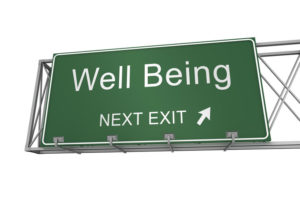By Rose O. Sherman, EdD, RN, NEA-BC, FAAN
I recently spoke with a senior nurse leader who is having a challenging time convincing her CEO that more needs to be done about nurse well-being in her organization. Her health system was hit hard during COVID but now the focus seems to be closing the door on the pandemic and returning to business as usual. This leader is wise enough to know that she cannot do this. Her workforce today is much different than they were in 2019. Like most of her colleagues nationwide, she is experiencing higher turnover, inability to recruit experienced staff, and skyrocketing FMLA use. Her frontline leaders talk with her about the stress, anxiety, and depression they see in their staff.
In a recently published study from Trusted Health, nearly 2/3 of the 1000 RNs surveyed reported depression, declines in physical health, and compassion fatigue. Sadly, 67% of these nurses don’t believe that mental health is a high priority in their organization. These findings are similar to what ANA found on a recent pulse survey.
There is a strong business case for nurse well-being outside of it just being the right thing to do. The current nursing workforce is now roughly 60% Generation Z or Millennial with those numbers growing every day. In recent work published by Gallup, organizational commitment to wellbeing was cited as the number one factor in employment selection by Generation Z and Millennials. A focus in this area is now a crucial differentiator for organizations who want to be employers of choice.
Beyond recruitment, a focus on staff mental wealth and wellbeing could become critical to provide quality and safe care. A newly published study done pre-COVID by Bernadette Melnyk and her research team in collaboration with AACN indicates a strong correlation between nurse mental and physical health and medical errors. A shockingly high number of critical care nurses had suboptimal mental health pre-COVID with 40% of nurses in the study reporting depressive symptoms and 50% reporting anxiety.
In their 2019 report on clinician burnout, the National Academy of Medicine acknowledged that organizational stigma around mental health is a significant obstacle to clinicians receiving the treatment they need. We find ourselves in a very challenging situation today as many health systems try to get back on track financially. This is a crisis that we cannot close the door on or pretend that does not exist. This is what Michael Unseem often referred to in his work as a leadership moment for many nurse leaders. Not every political battle in your organization is worth fighting but this one is.
© emergingrnleader.com 2021
Launch 2021 by giving your leadership team the gift of a highly rated webinar – Nursing Leadership in 2021: Rebooting after a Life-Quake A Nursing Leadership Reboot Workshop
Read the Nurse Leader Coach – Available at Amazon and Other Book Sellers.
Now Available to Strengthen Your Leadership in 2021 – The Nuts and Bolts of Nursing Leadership: Your Toolkit for Success




 LinkedIn
LinkedIn Instagram
Instagram